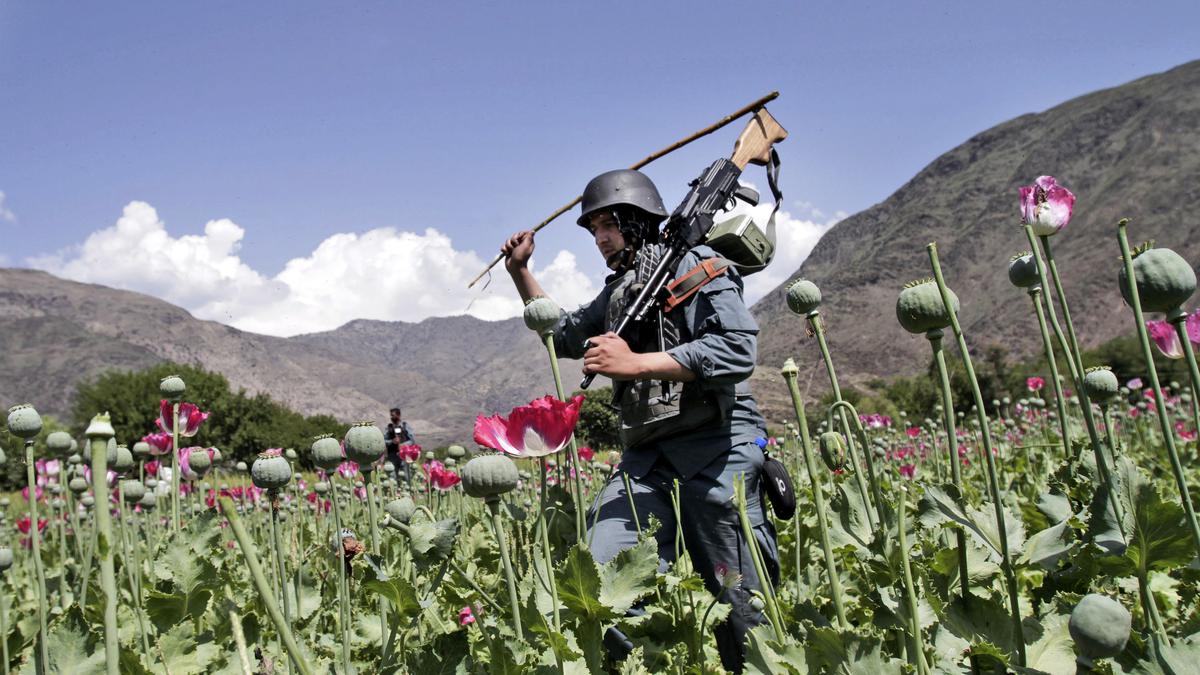
Afghan farmers lose income of more than $1 billion after Taliban banned poppy cultivation
The Hindu
They pledged to wipe out the country’s drug cultivation industry and imposed a formal ban in April 2022, dealing a heavy blow to hundreds of thousands of farmers and day labourers who relied on proceeds from the crop to survive.
Afghan farmers have lost income of more than $1 billion from opium sales after the Taliban outlawed poppy cultivation, according to a report from the UN drugs agency published on Sunday.
Afghanistan was the world's biggest opium producer and a major source for heroin in Europe and Asia when the Taliban seized power in August 2021.
They pledged to wipe out the country's drug cultivation industry and imposed a formal ban in April 2022, dealing a heavy blow to hundreds of thousands of farmers and day labourers who relied on proceeds from the crop to survive.
Opium cultivation crashed by 95% after the ban, the report from the UN Office on Drugs and Crime said.
Until 2023, the value of Afghanistan's opiate exports frequently outstripped the value of its legal exports.
UN officials said the strong contraction of the opium economy is expected to have far-reaching consequences for the country as opiate exports before the ban accounted for between 9-14% of the national GDP.
Afghans need urgent humanitarian assistance to meet their most immediate needs, absorb the shock of lost income and save lives, said UNODC executive director, Ghada Waly.













